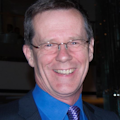How DDS Could Fit New Aviation Fuel Filtration Standards

Currently, there are two options for final filtration of aviation fuels into aircraft – filter monitors or filter water separators. But all this is about to change.
Filter water separators are two-stage filters that remove dirt and suspended water from jet fuel. The sump must be regularly drained to remove any water. These filters need more maintenance and are not considered fail-safe like the filter monitor elements that contain a super absorbent polymer (SAP).
SAP is a material similar to the absorbent material in babies’ diapers. It absorbs water and expands to block the flow of fuel through the filter, shutting down the fuel flow to prevent water entering the aircraft. The differential pressure (DP) gauge fitted to the filter vessel shows the increased fuel pressure so the refueler is aware of the situation and cause.
Unfortunately, there have been a small number of well-documented cases where SAP has leeched from the filter monitor elements causing significant aircraft engine performance issues. Possibly, the most notable incident involved Cathay Pacific’s flight 780 landing into Hong Kong after having fueled in Surabaya. The engine power was unpredictable during the approach to Hong Kong. The crew handled the situation extremely well and managed to get the aircraft to the airport but landed at an excessive speed and engine power.
The investigation found that the fuel contained SAP residue that had blocked engine fuel nozzles. This SAP had come from the filters of the refueling vehicle, restricting fuel flow. There have been a small number of similar incidents in the industry. In the majority of these cases, the issue is likely to have stemmed from poor understanding of filtration, poor training and poor housekeeping or maintenance.
The Joint Industry Group (JIG) and Airlines for America (A4A) have set new filtration standards to disallow the use of filters containing, currently, SAP from the end of 2020. Manufacturers are working on alternative technologies. The filter water separator filters do not use SAP in their elements, so this is one alternative that is available today. The other that is being developed and tested currently is dirt defense system (DDS) technology. This is, ostensibly, a sensor or particle counter that would detect water and particulates down to extremely low concentrations and shut down the refueling. The DDS system is likely to be used in combination with a non-SAP filter element to capture dirt or rust particulates.
The industry is testing the new DDS technology under simulated conditions. These include introducing various concentrations right up to almost pure water into the test system to determine how the technology will deal with this and how much water will travel through to the aircraft before the DDS technology shuts down the fuel flow. Regardless of the filtration technology, aircraft operators must be notified whenever there is any suspicion that water may have entered the aircraft fuel tanks, so they can drain the fuel tank sumps.
Whatever the final equipment and specification, the Energy Institute (EI) has currently only qualified the use filter monitors until the end of 2020. Refueling operators should be getting themselves ready for changes to their vehicles and fixed assets, and the inevitable cost of alterations and the downtime incurred while the work is completed.
Further details are available here.
Ian Bell has significant experience in the aviation fuels and training industries. Ian was the Operations and Safety Manager for Shell Aviation in the Asia-Pacific Region and now operates his own consultancy Global Safety Partners, supporting regional aviation fuels and refueling operations with training, engineering, maintenance and operational support services.
About the Author

Ian Bell
Director - Global Safety Partners
Ian Bell has significant experience in the aviation fuels and training industries. Ian was the Operations and Safety Manager for Shell Aviation in the Asia-Pacific Region and now operates his own consultancy Global Safety Partners, supporting regional aviation fuels and refuelling operations with training, engineering, maintenance and operational support services.